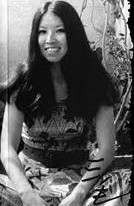 他们在旅行,却享受不到旅行的那份惬意;他们在观察,却常常对自己观察的东西一无所知。他们在全身心地投入,为的是探寻一个地方的精髓;他们孜孜不倦、历尽艰辛,为的是揭示比小说还离奇的世间真相。他们所从事的是一份既充满困惑也充满惊喜的职业……
他们在旅行,却享受不到旅行的那份惬意;他们在观察,却常常对自己观察的东西一无所知。他们在全身心地投入,为的是探寻一个地方的精髓;他们孜孜不倦、历尽艰辛,为的是揭示比小说还离奇的世间真相。他们所从事的是一份既充满困惑也充满惊喜的职业……
The young woman by the window turns to the man in the middle and smiles. He smoothes her hair and tells her she is going to love his city. Not even off the ground, and they have already created a private lair1) in the coach.
The man in the aisle seat immediately experiences feelings of exclusion, envy, and inadequacy. Travel, most people believe, is best when shared—an attitude that makes the solitary traveler one of life’s losers.
Just in time, the man reminds himself that he is not a loser. He is a travel writer. He will not be engaged in the superficial pursuits of tourists but in the difficult task of trying to make sense of an alien culture.
But why didn’t he bring his wife, or a friend? Some writers don’t want their assignment looking like a lark2). Those who embellish3) their accounts understandably prefer not to have witnesses. Also, going with a like-minded companion makes you susceptible to4) feelings of cultural superiority. But the real reason to travel alone is to be free from distractions, to be uninterruptedly absorbed in the place.
After the landing, the lovebirds and all the other passengers disappear in a rush to restart their lives, and the strangeness of the travel writer’s surroundings distracts him from the fact that he doesn’t have one.
靠窗的年轻女子微笑着转向坐在中间的男人。男人抚摩着她的秀发,说她一定会喜欢他所在的城市的。飞机还没有起飞,这对恋人就已经在经济舱内营造出了一个私密的爱巢。
靠走廊座位上的男人立刻感到自己受到了排斥,内心有些嫉妒和不适。大多数人都相信,有人陪伴的旅行才是最好的旅行——这一观点将孤独的旅行者纳入了人生失意者的范畴。
幸好,这位旅行者及时提醒了自己:他不是一个失意者。他只是一位游记作家罢了。他不会去关注一般游客所追求的那类浮于表面的东西,而是去完成一个艰难的使命——诠释异域文化的内涵。
可是,他为什么不带上自己的妻子或者朋友同行呢?原因不一而足:有的作家不想把自己的任务搞得像是嬉戏玩乐;那些喜欢对自己的描述添枝加叶的作家自然不希望有其他目击者在场;还有一点,和一个与自己想法相近的人同行,往往容易使自己产生一种文化上的优越感。但说到底,独自旅行的最根本原因在于要摆脱一切干扰,心无旁骛地沉浸于目的地。
飞机降落后,那对热恋鸳鸯和其他乘客都匆匆离去,重新开始各自的生活。而游记作家被周围陌生的环境分散了注意力,已忘记了自己并没有一个明确的去处。
What Am I Doing Here? 我在这里做什么?
If all writers are by nature outsiders—standing on the periphery5), taking in the action—the travel writer is an outsider times two. He repeatedly ignores the oldest saw6) of the trade: Write what you know. He is an observer who frequently doesn’t know what he’s observing.
Also, non-stop observation is not enough for the travel writer. After a few days a feeling of futility, not to mention loneliness, sets in. Business travelers have their meetings, aid workers their clinics, tourists their museums. Travel writers have no itineraries7) or obligations, and we have no leads, since frequently we don’t know what our story is. In the absence of a special event, or a specific assignment, we have to find our story, and often it is whatever happens to us.
So we wander, mosey8), poke around. A lot of travel writing is creative hanging out.We’re hoping for an incident or a character or even a calamity9) that can become our subject. The worst trips, it is famously said, make the best stories, a philosophy that fuels the trend in adventure travel. Risk—its heated build-up and colorful consequences—is an irresistible subject. The problem with much of the writing that results is that it’s heavy on personal rather than worldly insight, portraying not the place but the author’s mettle10).
Unlike the adventurers, who have a quest, the rest of us struggle with definition. We are not tourists, though we share their transport, their hotels, their intoxication11) with the new. Shunning the tour groups, we traipse12) through neighborhoods and sit in bars and inadvertently13) make ourselves even more out of place. We are engaged in work that looks a lot like play—even to us. But it lacks play’s essential carefree quality. A story has to result. And it weighs on14) us, this knowledge, along with the idea of our impertinent existence.
如果说所有的作家从本质上说都是局外人——站在一旁、冷眼观察——的话,那么游记作家则是局外人中的局外人。他总是无视创作这一行当中最古老的行规:写自己知道的东西。他是一位观察者,但对自己观察的东西却常常一无所知。
不仅如此,对于一个游记作家来说,马不停蹄地观察是不够的。观察几天之后,一种徒劳无功之感就会悄然而生,更不用提寂寞孤独了。商务旅行者有自己的会议,医疗救助者有自己的诊所,旅游观光者有自己要看的博物馆。游记作家却没有特定的旅行路线或者明确的职责义务。我们缺乏线索,毫无头绪,因为我们常常不知道自己要写什么东西。既无特别的事件,又无明确的任务,我们只能自己去寻找写作素材,而且往往是遇到什么就写什么。
于是,我们信马由缰,四处游荡,这里瞧瞧,那里看看。许多游记就是在这样的东走西逛中创造出来的。我们总希望能遇到一件事、一个人,甚至是一场灾难,好成为我们的写作素材。有句名言说道:最糟糕的旅行造就最精彩的文章。这一观点使得风头正盛的历险游记更加红火。历险是一个让人无法抗拒的永恒话题,这源于它险象环生、充满刺激的过程以及丰富有趣、多姿多彩的结局。然而,也正因为如此,许多的历险作品都存在一个通病:在对世情的洞察方面,它们往往侧重于强调作者个人的看法而非大众的普遍意识;在对细节的刻画方面,它们描写的往往是作者的历险勇气而非当地的风情物志。
游记作家与历险者不同,历险者有一个明确的探寻目标,而游记作家只能在混沌中挣扎和摸索。虽然我们和游客一样乘坐交通工具、住宾馆、为新奇的发现而陶醉,但我们不是游客。我们从不和游客缠搅在一起,而是穿梭于街区民舍之间,坐在酒吧之中,不经意间,将自己变得和周围的环境更加格格不入。我们所从事的工作看起来颇像玩乐——即使在我们自己看来也是如此。但它却缺乏玩乐最基本的特征——无忧无虑。最终必须要写出点什么来,对此我们心知肚明,再加上总感觉自己难以和谐地融入当地的环境,心头的负担自然分外沉重。
 But we press on15), watching people with purpose go through their day, remembering friends back home who said they’ve always dreamed of visiting the place where we now schlep16). And without any prompting, we think of Bruce Chatwin17)—not his 1977 masterpiece, In Patagonia, but his posthumous18) collection, What Am I Doing Here.
But we press on15), watching people with purpose go through their day, remembering friends back home who said they’ve always dreamed of visiting the place where we now schlep16). And without any prompting, we think of Bruce Chatwin17)—not his 1977 masterpiece, In Patagonia, but his posthumous18) collection, What Am I Doing Here.
但我们仍坚持继续前行,一边怀揣着目的观察人们一天的生活,一边回想着家乡的朋友——朋友们总说,梦想着有一天能到我们所在的地方旅行,却不知我们现在正在这样的地方费力摸索,一筹莫展。毫无缘由地,我们会想起游记作家布鲁斯·查特文,不是想起他1977年的名作《巴塔哥尼亚高原上》,而是想起他去世之后出版的文集——《我在这里做什么》。
How Do I Discover Essence? 怎样探寻精髓?
Today, however, we wonder not just what we’re doing here but how we can ever discover its essence. How can we possibly describe all these faces, all these doorways and shop windows? The scale of every place overwhelms: hundreds of streets we can never walk down, thousands of people—many of them, surely, perfect embodiments of their city’s spirit—we will never meet. A dozen just passed, lost forever. Who, after all, are we to pronounce on this place?
Miraculously, these doubts vanish when observation gives way to participation.
My first trip “on assignment” was to Spain and Portugal. For two weeks I walked the streets—Madrid, Barcelona, Seville, Lisbon—ate in the restaurants, took in19) the sights. I was always alone and painfully aware that something was missing. Desperate in Coimbra, I went to the university English department and accosted20) the first person I saw. This turned out to be Bibi, a woman teaching Dutch. She told me about her friend in Lisbon, a poet named Casimiro whom I should call when I returned there.
Casimiro invited me to dinner, after which we went to a bar for fado music21). On my solitary strolls I had passed numerous restaurants advertising “folklorique evenings”; this wasn’t one of them. It was a smoky dive, full of what looked like stevedores22) sitting at long tables before a gaunt23) guitarist perched on a stool. Occasionally a lone brute would stand up and belt out24) a song of outstanding melancholy. Casimiro translated. “It smells of Lisbon,” he said after one almost upbeat number. “It smells of flowers and the sea.”
That night I learned how to travel as a travel writer: You approximate, as best you can, in the short time allotted you, the life of a local.
And this is achieved through personal encounters. It is something the adventure writers often miss. Everyone can climb Kilimanjaro, or at least attempt to. They will all, for sure, have their own individual responses to the experience, but they all go up the same mountain. Whereas the person you meet in your travels is yours alone.
Even when I’m in search of a story, many of my trips are uneventful. But it does sometimes happen that I find good people, learn new things, participate in the life of a place. And there are times—like unexpected gifts—when the people become friends, the information becomes insight, the participation becomes engagement; I develop an emotional attachment to the place. And then I think: It’s not the worst trips that make the best stories—it’s the best trips.
然而,今天我们所困惑的不仅是我们在这里做什么,还有我们该如何去探寻这里的精髓。我们怎么可能描绘出这里的每一张面孔、每一个门户、每一个橱窗呢?没有哪一个地方是我们可以全面了解的:总会有数百条街道是我们的脚步永远无法到达的,总会有成千上万的居民是我们永远无缘见到的——而毫无疑问这其中有很多人是这个城市精神的完美体现。还有一些人刚刚去世,永远地消失了。那么,我们究竟该选择谁来代表这座城市呢?
神奇的是,当我们不再旁观,而是参与其中时,这些疑惑便全都消失了。
我的第一次“带着任务”的旅行是前往西班牙和葡萄牙。一连两周,我在各地的大街上大走特走——马德里、巴塞罗那、塞维利亚、里斯本,在饭店里吃饭,欣赏沿途的风光。我总是独自一人,总是痛苦地意识到有些东西正从我的眼皮底下流失,再也找寻不到。绝望之下,在可因布拉大学,我向英语系走去,决定和我遇见的第一个人聊几句。结果我遇到了比比,一位教荷兰语的女教师。她向我介绍了她在里斯本的朋友,一位名叫卡西米罗的诗人,要我回里斯本后去拜访他。
卡西米罗请我吃饭,饭后我们去了一家酒吧,聆听法多音乐。在我独自一人寂寞地漫步之时,也曾经过几家饭店,都打着“民歌晚会”的广告。但这一家跟它们不一样。这是一家乌烟瘴气的低级酒吧,一个面容憔悴的吉他手坐在凳子上,他前面的长桌边坐满了码头搬运工模样的人。时不时地,某个孤独无伴的鲁莽家伙会站起来,拉开嗓子唱上一首极为动听的忧伤歌曲。卡西米罗为我翻译歌曲的意思。“这就是里斯本的味道,”在一段接近欢快的乐曲之后,他说,“这就是鲜花和大海的味道。”
那天晚上,我明白了身为一个游记作家的旅行之道:在自己能获得的较短的旅行时间内,尽可能地去接近某个当地人的生活。
这要通过人与人之间的邂逅才能做到,而这一点正是历险作家所常常错失的。人人都能攀登或至少试着去攀登乞力马扎罗山,每一名攀登者也一定会对这一经历有着各自不同的反应,但再怎么说,他们攀登的也只是同一座山而已。可你在旅行中遇到的人就不一样了,那只属于你自己。
即使在我挖空心思地寻找写作素材时,我的许多旅行也都是平淡如水、无甚可写的。但有的时候,我也确实会遇到一些美妙的人,了解一些新鲜的事,融入某个地方的生活中去。而且,还有的时候——就像意外收获的礼物一样——曾经的陌生人会成为我的朋友,最初了解的肤浅信息会变成深刻的洞悉,对生活的参与会变成全身心的投入。对于这样的地方,我就会产生感情上的依恋。于是我就会这样想:并不是最糟糕的旅行才能造就最精彩的作品——是最精彩的旅行造就着最精彩的作品。
Why Am I Writing This? 我为什么写游记?
Row 37, seats J, K, and L. The teen slumped against the window is snoring loudly, and the man in the middle weighs 300 pounds. Nevertheless, the woman in the aisle seat leans back and smiles. She is a travel writer, and for the first time in a long while she has nothing to do. The place she obsessed about for months has disappeared beneath the clouds. All the anxiety she felt on the flight over is now replaced by exhausted elation25). She luxuriates26) in the lull27) between legwork28) and composition.
The feeling of contentment doesn’t last long. At her computer the old doubt returns, though this time it’s not stirred by the confusion of the new. The chaos of travel has given way to the order of home. She is, as one never is on the road, in control. Her late-night stumble into29) a slum is rendered calmly, with carefully weighed words.
Yet even when those words are flowing, uncertainty creeps in. “What am I doing here?” becomes, in its domestic form, “Why am I writing this?”
It sometimes seems that as more people go out into the world, there is less interest in reading about the world. How else to explain the decline of the travel book in the age of globalization? For some time now, the travel writer has been viewed as a kind of subspecies. Few modern travel books have been heralded as literature. Magazines and newspaper sections devoted to travel are mostly unreadable.
And yet, good travel writing continues to be written and published. The best writers in this field bring to it an indefatigable30) curiosity, a fierce intelligence that enables them to interpret, and a generous heart that allows them to connect. Without resorting to invention, they make ample use of their imaginations. They do what many of their compatriots31) find impossible.
The travel book itself has a similar grab bag32) quality. It incorporates the characters and plot line of a novel, the descriptive power of poetry, the substance of a history lesson, the discursiveness33) of an essay, and the—often inadvertent—self-revelation of a memoir. It revels in34) the particular while occasionally illuminating the universal. It colors and shapes and fills in gaps. Because it results from displacement, it is frequently funny. It humanizes the alien. More often than not it celebrates the unsung. It uncovers truths that are stranger than fiction. It gives eyewitness proof of life’s infinite possibilities.
This is why you write it.
第37排,J、K、L座。斜靠在舷窗上的年轻人大声地打着呼噜,坐在中间座位上的男人足有300磅重。而坐在靠走廊座位上的女士仰靠在座位上,脸上挂着微笑。她是一位游记作家,在很长一段时间里她还是第一次什么事都不用做。那个困扰了她几个月的地方终于消失在云层之下了。来时在飞机上感受到的所有焦虑现在不见了,取而代之的是一种疲惫的愉悦感。她尽情地享受着在采访和写作之间的短暂宁静。
这种心满意足的感觉并不会持续很久。一旦坐到电脑面前,先前的那种疑惑会再次出现,尽管这一次并不是由于陌生事物的困扰而引起。旅途的喧嚣混乱已经被家的秩序井然所取代。现在,一切都掌握在她自己手中,而这一点在旅途中是绝不可能的。她平静地、字斟句酌地描述着她深夜误入贫民窟的情形。
然而,即使就在她挥洒文字的时候,困惑也会悄然来袭。在回到家以后,“我在这里做什么?”的问题就变成了“我为什么要写这个?”
有时候,人们见过的世面越多,对关于这个世界的文字似乎就越不感兴趣。要不然,该怎么解释在全球化时代旅游书籍的不景气呢?一段时间以来,游记作家一直被视为亚种生物。没有几部现代旅游作品被看做是文学作品。报纸、杂志上的旅游专栏多数不值一读。
然而,优秀的旅游作品仍然在不断地被创作出来并得以出版。优秀的游记作家仍在孜孜不倦地上下求索,非凡的才智使他们善于诠释,宽大的胸怀使他们善于沟通。他们不愿凭空虚构,于是充分地发挥自己的想象力。他们所做的,是许多同行认为不可能完成的任务。
旅游作品本身具有大杂烩的性质。它既有小说的人物塑造和情节发展,又有诗歌的强大表现力;既有史书的实质内容,又有散文的闲谈阔论;在不经意间往往还会流露出回忆录的自我揭示。它对特殊现象情有独钟,但偶尔也会涉及普遍规律。它绘形绘色,填补空缺。由于它是空间挪移的结果,因而往往分外有趣。它赋予异样的文化与陌生的群族以人性化的合理解读。多数时候,它对无人喝彩的东西大唱赞歌。它揭示出的真相比小说还要离奇。它用亲身的经历,见证了大千世界的变幻无穷。
而这,就是我为什么要写游记。
1. lair [leE] n. 窝
2. lark [lB:k] n. 嬉戏,玩乐
3. embellish [Im5belIF]
vt. 修饰,添加细节于
4. susceptible to:易受……影响的
5. periphery [pE5rIfErI] n. 边缘地带,边界
6. saw [sR:] n. 谚语,格言
7. itinerary [ai5tInErErI] n. 旅程,路线
8. mosey [5mEuzI] vi. 漫步,匆匆离去
9. calamity [kE5lAmItI] n. 灾难,不幸事件
10. mettle [5metl] n. 精神,勇气,决心
11. intoxication [In7tCksI5keIFEn] n. 陶醉
12. traipse [treIps] vi.漫步,拖曳
13. inadvertently [7InEd5vE:tEntlI] adv. 不注意地
14. weigh on:重压,压垮,成为负担
15. press on:奋进,(不顾困难地)继续进行
16. schlep [Flep] vi. 缓慢费力地行进
17. Bruce Chatwin:布鲁斯·查特文(1940~1989),英国小说家、游记作家,曾任职于《周日时报》(The Sunday Times),代表作有《巴塔哥尼亚高原上》(In Patagonia)、《歌之版图》(The Songlines)等。
18. posthumous [5pRstjumEs] adj. 作者死后出版的
19. take in:详细地看,注视
20. accost [E5kRst] vt. 搭话
21. fado music:法多音乐,一种悲伤的葡萄牙民歌,多为思乡曲。
22. stevedore [5sti:vEdC:] n. 搬运工
23. gaunt [^C:nt] adj. 憔悴的
24. belt out:拉开嗓门唱
25. elation [I5leIFEn] n. 得意洋洋,兴高采烈
26. luxuriate [lQ^5zjuErIeIt] vi. 沉溺
27. lull [lQl] n. 间歇,间隔
28. legwork [5le^wE:k] n. 外出搜集情况的工作(如新闻采访,案件调查等)
29. stumble into:失足,误入
30. indefatigable [7IndI5fAtI^Ebl] adj. 不懈怠的,不知疲倦的
31. compatriot [kEm5pAtrIEt] n. 同胞,同事
32. grab bag:摸彩袋,混杂,大杂烩
33. discursiveness [dIs5kE:sIvnIs] n. 散漫,漫无边际
34. revel in:陶醉,喜好
